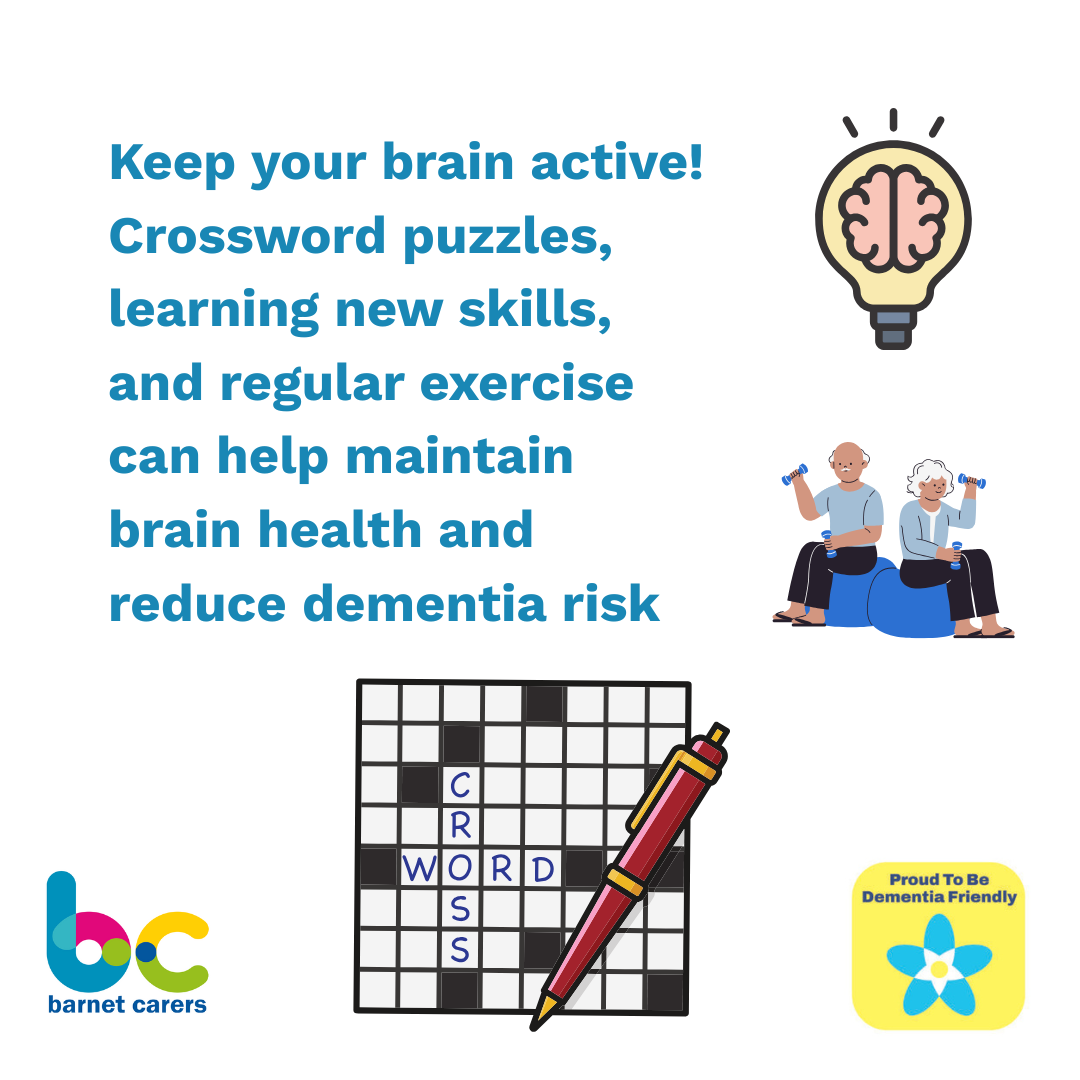This week is Dementia Action Week. There are activities taking place throughout the borough and on Thursday 22nd between 12 and 2pm Barnet Carers will be hosting a drop-in event at the Arts Depot in Finchley.
If you support someone with dementia or just want to know more about what is available in the borough then this will be ideal for you. There will be stalls from Barnet Carers, Age UK Barnet, the Prevention and Wellbeing Team, the Specialist Dementia Service, and Your Choice Barnet.
We will also have a member of the Barnet Home Carers Team available to talk to you if you have ever thought about using professional carers to support you. Gerri has a huge amount of experience in supporting people with dementia and will be able to answer many of your questions.
Dementia is a condition that affects millions of people worldwide, leading to challenges in memory, cognition, and daily functioning. While it is often associated with older adults, dementia is not a normal part of ageing, but a complex syndrome with various causes, including Alzheimer’s disease, vascular dementia, and other degenerative conditions. As this challenge grows, increasing awareness about dementia and recognising the crucial role of carers is essential for creating inclusive communities that support those living with the condition – and the people that care for them.
The Importance of Dementia Awareness
Awareness is the first step towards meaningful change. Many people still misunderstand dementia, assuming it is purely a loss of memory, when in fact it encompasses a broad range of symptoms including difficulties with language, problem-solving, emotional regulation, and spatial awareness. This lack of understanding often leads to stigma, which isolates individuals with dementia and their families.
Promoting dementia awareness helps communities understand the needs of people with the condition, fostering empathy and breaking down barriers to inclusion. Awareness campaigns can educate the public about early signs of dementia, encouraging timely diagnosis and intervention, which are key to managing the progression of the disease. Moreover, informed communities are better equipped to advocate for policies that ensure access to healthcare services, support systems, and research initiatives dedicated to improving the lives of those affected.
The Key Role of Carers
Carers provide essential support to help individuals maintain dignity and quality of life. Their roles are multifaceted: they assist with daily activities such as bathing, dressing, and eating; manage medications; and offer companionship and emotional support. Carers often become advocates, navigating complex healthcare systems and ensuring their loved ones receive the services they need.
The emotional toll on carers can be profound. Witnessing the cognitive and physical decline of a loved one is heart-wrenching, and the demands of caregiving often lead to burnout. Many carers put their own needs aside, sacrificing career opportunities, social connections, and personal wellbeing to ensure their loved ones are cared for. Despite their pivotal role, carers are frequently overlooked, receiving little recognition or support.
Supporting Those Who Support Others
Providing support to carers is as important as supporting individuals with dementia themselves. Carers need access to resources, including respite care, counselling, and training programs that equip them to handle the demands of caregiving. Respite care allows carers to take necessary breaks, reducing stress and enhancing their ability to provide effective care. Counselling and peer support groups can offer emotional relief and a sense of community, reminding carers that they are not alone in their journey.
Governments and organisations must invest in policies and programs that address carers’ needs. Financial assistance, flexible working conditions, and access to healthcare services for carers should be prioritised to ensure they can continue their vital work without compromising their own wellbeing.
Dementia awareness and carer support are inextricably linked. A society that understands dementia and values the contributions of carers is one that ensures dignity and hope for all affected by this challenging condition. By fostering awareness and providing tangible support to carers, we can build compassionate communities that uplift both individuals living with dementia and those dedicated to their care. After all, carers are the backbone of dementia care—and their wellbeing is crucial to the wellbeing of those they support.




